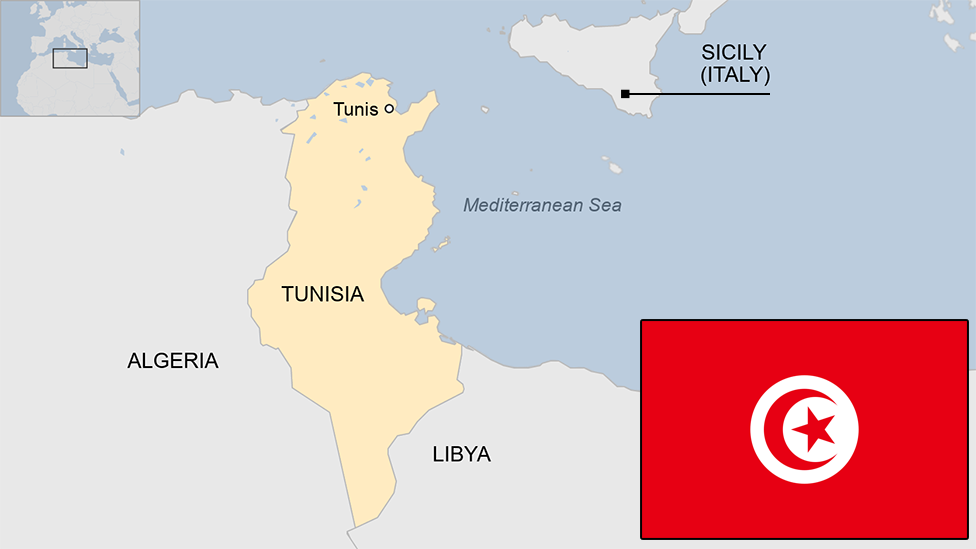Tunisia holds second free presidential election
- Published
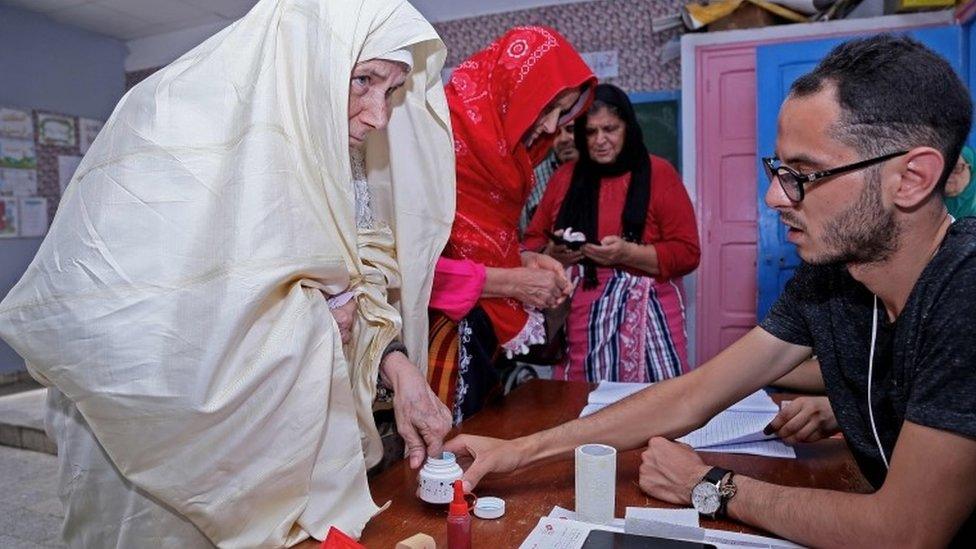
Few young people have been seen voting
Polling booths have closed in Tunisia, which is holding its second free presidential poll since the 2011 uprising that toppled ex-president Ben Ali and sparked the Arab Spring.
Twenty-six candidates, including two women, are running in the election.
Exit polls suggest an independent outsider, Kais Saied, has done well in the first round of votes.
Turnout has been low at 45%, despite an earlier call for young Tunisians to get out and vote.
The election was brought forward after the death in July of Beji Caid Essebsi, the first democratically elected president, who took office in 2014.
It is widely viewed as a test of one of the world's youngest democracies, but there were reports that few of those travelling to polling booths were young.
"Where are the young people? This is their country, their future," Adil Toumi, a man in his 60s who came to vote, told the AFP news agency.
Official results are not expected until Tuesday.
The outcome is difficult to predict but early exit polls suggest that Kais Saied, a 61-year-old law professor and independent, and Nabil Karoui - a media magnate currently in jail - could be well placed to make it to the second round.
Mr Essebsi won Tunisia's first free presidential elections in 2014 and was credited with largely maintaining stability in the country during his almost five-year rule.
At 92, he was the oldest sitting president in the world at the time of his death. Mr Essebsi had previously confirmed that he was not planning to run for re-election. His wife, Chadlia Saida Farhat, died on Sunday morning, aged 83, their son announced on Facebook as voting was getting under way.
Parliament speaker Mohamed Ennaceur is currently acting as interim president.
How does the vote work?
A candidate needs a majority of votes to win the election. If no-one gets a majority in the first round, the two candidates with most votes will face a second, decisive round.
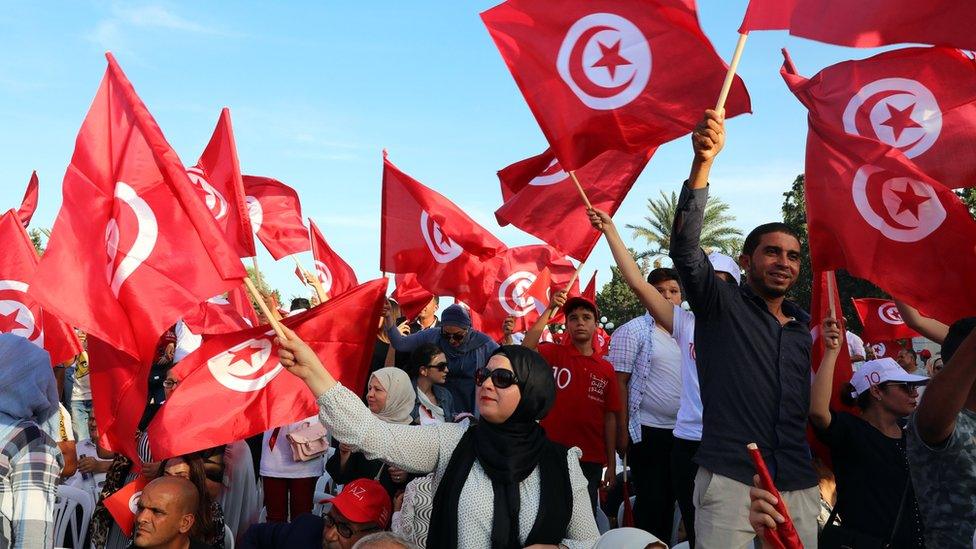
Presidential candidates have held campaign events across the country
The winning candidate will be appointed to office for a five-year term.
The constitution states that Tunisia's president has control over defence, foreign policy and national security. The prime minister, chosen by parliament, is responsible for other portfolios.
Parliamentary elections are scheduled to take place in October.

Who are the candidates?
Some of the most prominent candidates include:
Youssef Chahed: He became Tunisia's youngest-ever prime minister when he took office in 2016. Since then, the 43-year-old has carried out a series of cuts to public spending in a bid to reduce Tunisia's public debt. He has banned the wearing of the niqab, which covers the entire face apart from the eyes, in government offices, citing security reasons. Mr Chahed split from the government and formed his own secular party, Tahya Tounes (Long Live Tunisia), earlier this year.
Nabil Karoui: The 56-year-old media mogul is running for office from behind bars after being detained last month on charges of money laundering and tax fraud, which he has denied. He founded a charity focused on fighting poverty - a central theme of his campaign. Critics have accused him of using the charity and his TV channel to further his political ambitions. On Saturday, a court rejected his request to be freed from detention pending a verdict in his case. He is still able to stand for election despite his arrest, but will not be able to vote unless he is allowed out of prison. He began a hunger strike earlier this week to demand his freedom.
Abdelfattah Mourou: He is the Tunisian lawyer who co-founded the moderate Islamist Ennahda party, which was banned for decades before the uprising. The 71-year-old is the first presidential candidate for Ennahda, which is now the largest party in Tunisia.
Abir Moussi: One of two female candidates in the running, Ms Moussi is a 43-year-old lawyer who was a supporter of Tunisia's ousted ruler Ben Ali. She is known for her opposition to Tunisia's Islamists and has reportedly said she wants to change the constitution to ban parties based on religion.
Abdelkarim Zbidi: The 69-year-old is a trained medical doctor who studied in France and has held the post of defence minister twice since 2011. He was a close friend of the late president, Essebsi. In a recent interview with Reuters news agency, he said he wanted to amend the constitution to end the "unreasonable" division of power between the prime minister and president.
Moncef Marzouki: He was Tunisia's provisional leader after the Arab Spring uprising and Mr Marzouki now wants to take up the role of president again. The former human rights activist and opposition leader has accused other candidates of "fighting each other with methods unworthy of democracy." He told the Associated Press news agency that dirty money was his "most formidable rival".

Why is this election significant?
The country has won praise as the only democracy to emerge from the Arab Spring uprisings that began in Tunisia, before spreading across the Middle East and North Africa.
In what was hailed as a sign of its successful democratic transition, Tunisia this month held its first-ever televised debate of presidential candidates.

The campaign period featured the first ever televised debate of presidential candidates
However, it has not all been smooth sailing. In recent years, the country has suffered attacks by Islamists and economic problems, with unemployment a persistent issue.
In 2018, protesters across the country took to the streets to oppose the government's austerity measures.
Prime Minister Youssef Chahed told Reuters news agency that economic opportunities must improve "if Tunisia is to join the club of strong democracy".
How did we get here?
Tunisia is the birthplace of what has become known as the Arab Spring uprisings.
Widespread discontent at economic hardship, decades of autocratic rule and corruption erupted into mass demonstrations in December 2010 after a street vendor set himself on fire when officials confiscated his cart.
The unrest led to the ousting in 2011 of President Ben Ali, who had been in power for 23 years.
Three years later, Tunisia's parliament approved a new constitution, which detailed how the new democracy would be run.
The text was hailed by the United Nations as a "historic milestone". Significant aspects included the recognition of equality between men and women, guaranteeing personal freedoms and splitting power between the president and prime minister.
- Published25 July 2019
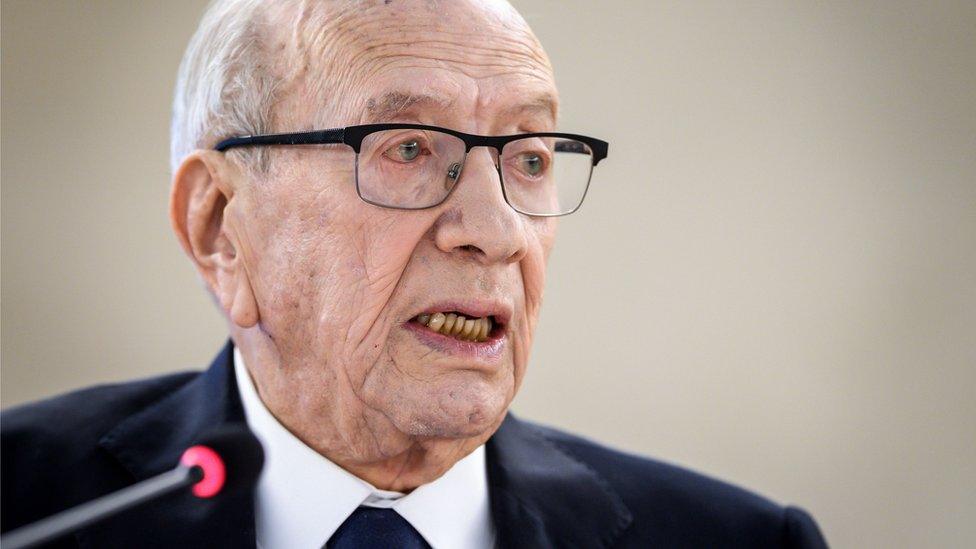
- Published25 July 2019
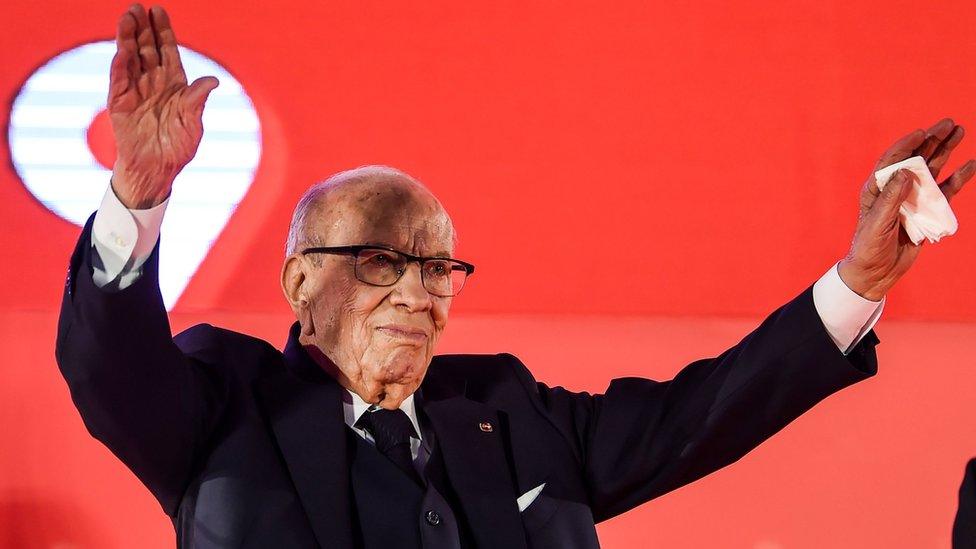
- Published28 February 2017
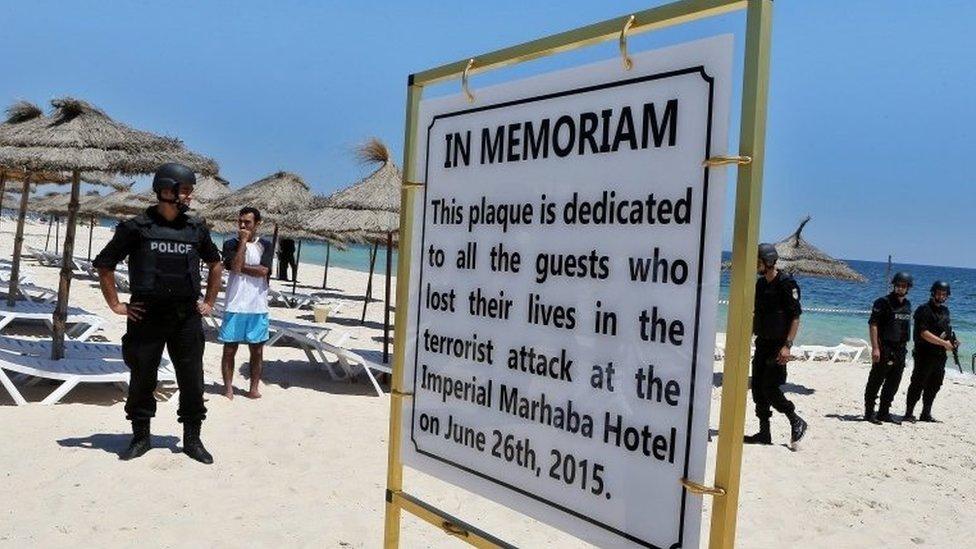
- Published9 October 2024
